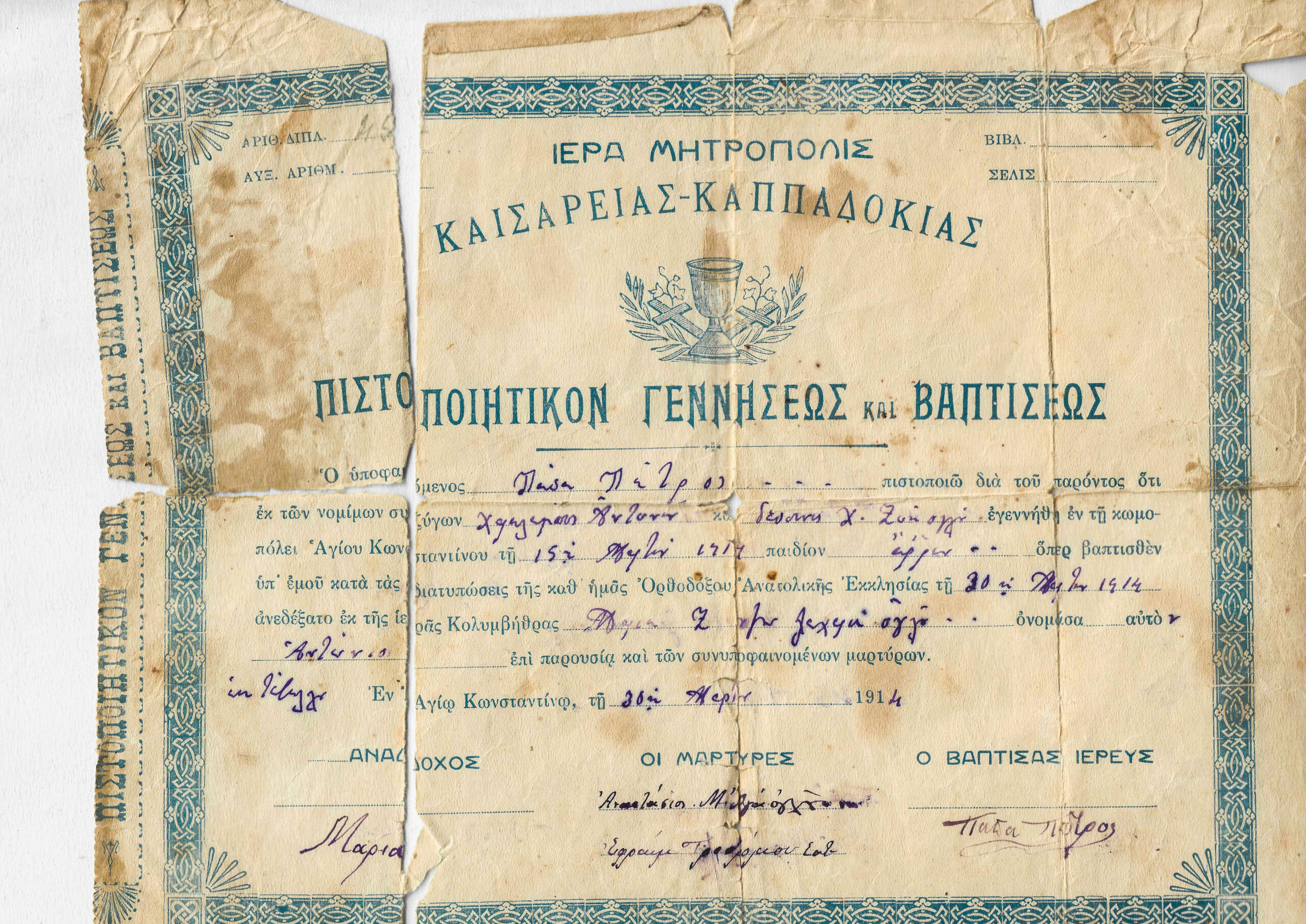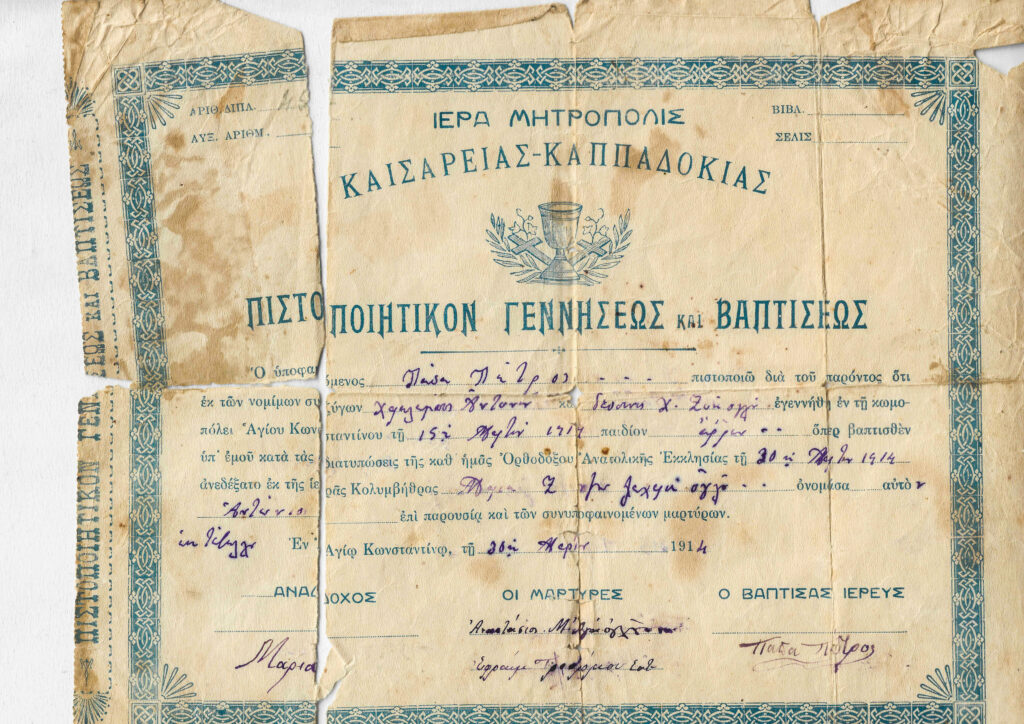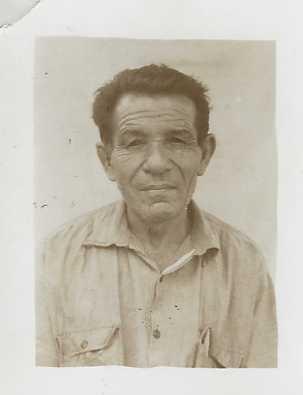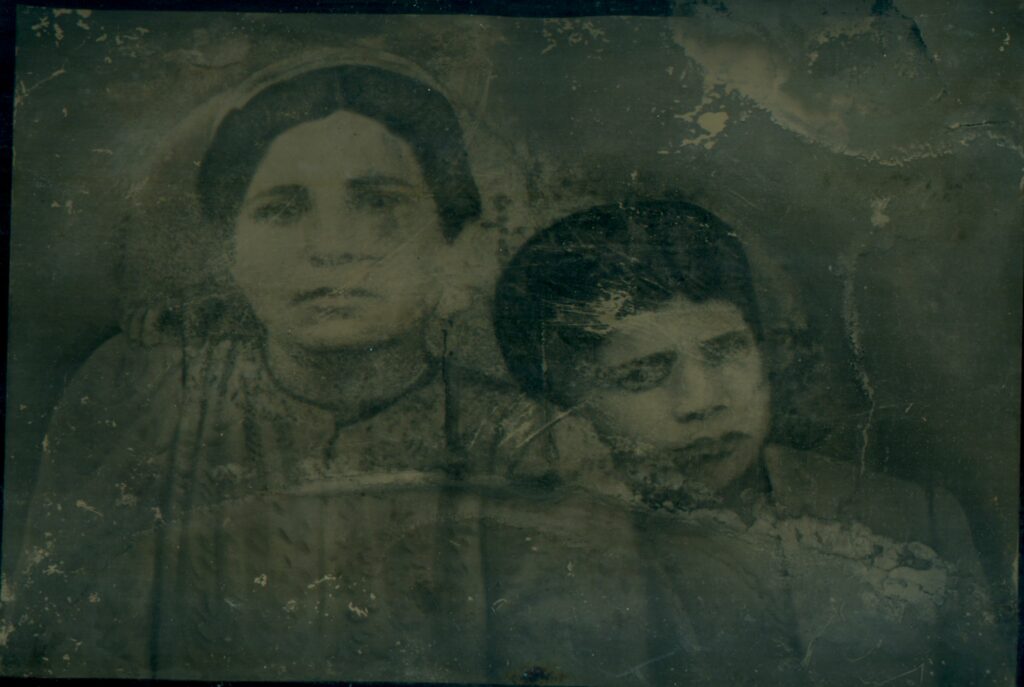The family of Charalambos Sarantidis and Despoina Nikolaidou lived in a small town called Agios Konstantinos (Ai Kosten in the local dialect, Everek in Turkish, also known as Tevelli-Develi) in the province of Kaisareia (Kayseri) which was a local financial and commercial hub. Their family owned flour mills and was affluent, with Charalambos expanding his commercial activities to Constantinople. On March 15, 1914, the couple had their first baby. Right after birth, the baby boy developed serious health issues and the doctors thought he would not survive. The parents rushed to baptise him, which is why Antonis Sarantidis’ ‘certificate of birth and baptism’ was issued only five days after his birth, dated March 20, 1914.
During the Greco-Turkish war (1919-1922), Charalambos Sarantidis, Antonis’ father, was sent to a forced labour battalion (amele taburlari in Turkish) from where he managed to escape and reach Piraeus on a Russian boat. His wife, Despoina, and little Antonis, who was 8 at the time, were designated exchangeable refugees and disembarked in Corfu. The family reunited a few years later in Piraeus with the help of the Red Cross and settled in Kokkinia. In Januray 1927, they bought a plot of land in Korydallos, which was originally owned by Lavria Serpieri and Eleni Averof. Two more daughters were added to the family, but by 1935 Despoina had died. Charalambos remarried and had four more children, two sons and two daughters.
Antonis Sarantidis had to work from a very young age to support his family, mainly as a greengrocer, but doing other seasonal jobs as well. He was conscripted into the army in 1937 during the Metaxa dictatorship, fought in the Albanian front, joined the Greek resistance during the German occupation and was exiled to Makronisos in 1948 during the Greek civil war, where he was held for two years. He died in 1990. The certificate carries great sentimental value for the family as it is one of the few surviving items brought over by Despoina Sarantidi and little Antonis; one of the few pieces of evidence that attests to their lives in the homeland they had to leave behind.
—
Object description written by: Antonis Sarantidis
Image: Nikos Tsiokas




